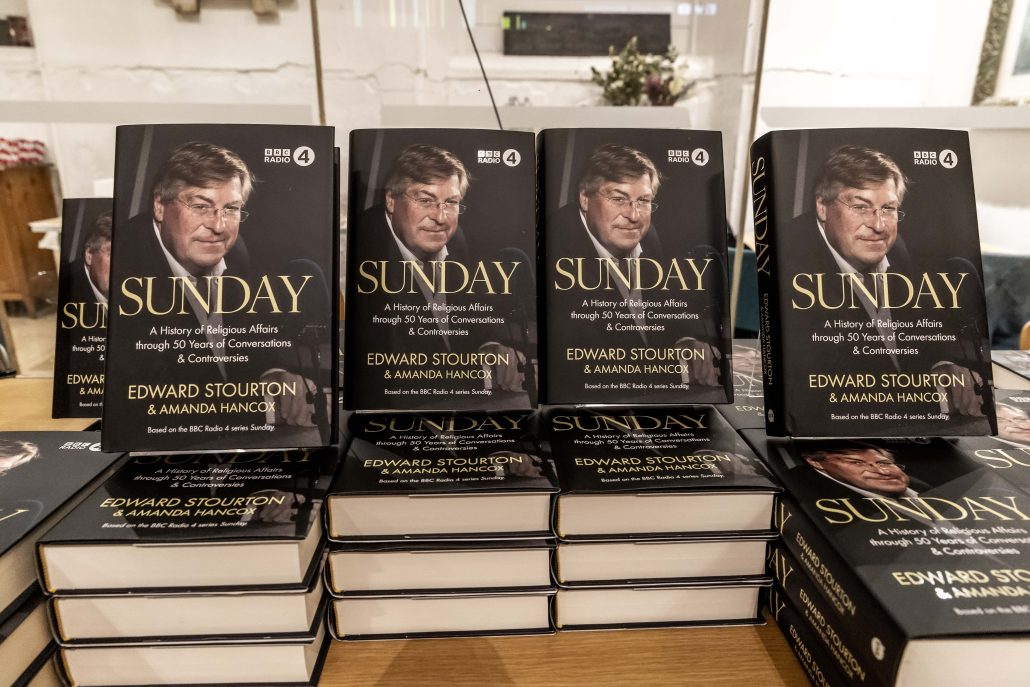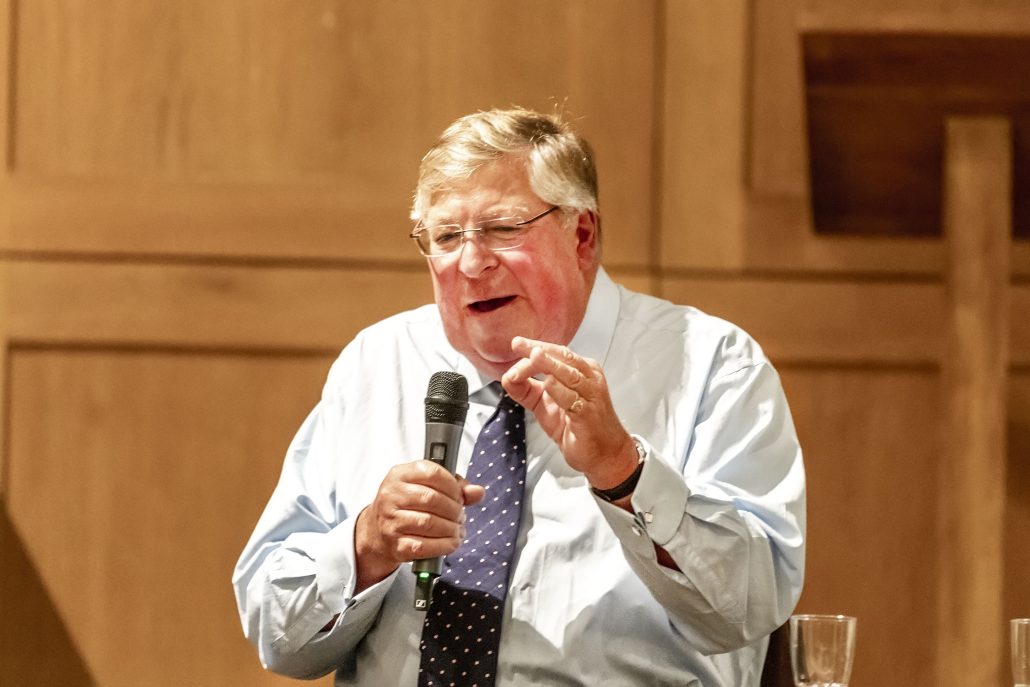Keeping the Faith
Religion still deserves its place on the airwaves, says ‘Sunday’ host Edward Stourton

For more than fifty years, BBC Radio 4’s ‘Sunday’ has examined news and current affairs through the lens of religion. The premise behind the programme being that religion does not exist in a vacuum. Which is to say it’s not isolated in a discrete public-domain of ritual practice and belief. At the time of writing this remit has never seemed more relevant. With the Middle East poised on the brink of a full blown war and in the face of immense and ongoing tragedy, what people believe, how that impacts on their sense of identity, community or history and how it is translated into how politics or social-economics are practised, means that it’s never been so important to understand religion.
Now, Edward Stourton has collaborated with his former ‘Sunday’ editor Amanda Hancox to review over fifty years of current affairs in their book, Sunday. Featuring interviews with well-known figures such as Desmond Tutu, Rabbi Jonathan Sacks and Enoch Powell, the book traces the evolution of debate on a variety of key issues including sexuality, bioethics, nuclear weapons and many more. To mark it’s publication, Edward and Amanda took part in a special Sandford St Martin salon and Ed wrote a special column for the Radio Times which has been reproduced with their permission below.
Viewpoint: Keeping the Faith
by Edward Stourton, first published 14 October 2023
“At a time when complaint is sometimes made that religion is losing its hold on the world”, the 1928 BBC Hand Book declared, “The BBC is doing the best of service to prevent any decay of Christianity in a nominally Christian country”.
John Reith, the corporation’s deeply religious founding father, wanted a “thorough-going, optimistic and manly” version of Christianity preached from the “pulpit of the airwaves”, and his Sunday schedule offered an austere diet: two services, separated by a long period of complete silence, self-improving talks and serious music.
While secular critics complained that millions of listeners might prefer to be entertained on their day of rest, Reith’s vision endured for decades. Right up until the 1960s, most producers in the BBC’s religion department were clergymen in the Church of England.
But religious broadcasting changed with the birth of Radio 4’s Sunday programme in 1970. For the first time, religion was treated as an object of journalistic inquiry, not simply celebrated in broadcast services. Priests and bishops were challenged in interviews and could no longer assume the deference they had enjoyed.
In the half century or so since Sunday first aired, religious broadcasting of that kind has become more, not less, essential. Mainstream Christianity may have “lost its hold” over our audience in a way that would have shocked Lord Reith, but religion is a more powerful and present force in our world than ever before.
The first non-Christian religious item broadcast by Sunday seems to have been a 1974 interview with a Muslim community leader who objected to mixed PE and swimming lessons in schools. Then, there were around 250,000 Muslims in the UK; today there are closer to four million. Britain’s religious landscape is richly diverse and, without some understanding of Islam, Judaisim, Hinduism (our prime minister’s religion), Sikhism and Buddhism, it’s impossible to make sense of our own society.

Almost every big global news story has a religious dimension, from Muslim Uyghurs suffering state oppression in China to Orthodox believers in Russia and Ukraine bitterly divided by war; and school dress codes in France to Bible-belt voters deciding US elections. If we do not reflect these realities, we fail our audiences.
The 2021 census found that, for the first time, less than half the population identified as Christian, and 37 per cent ticked the “no religion” box. There is a case for adjusting the way religious worship is broadcast to reflect that. It’s also true that those who want to access services without leaving home can now do so more easily; the popularity of online worship is an unexpected legacy of the pandemic.
None of that makes a case for banishing religion from the airwaves. That 1928 Reithian manifesto for religious broadcasting included one insight that still stands up: “In a national service to which nothing that pertains to life of men is foreign, it was natural from the beginning religion should find its place in British Broadcasting. It could not be otherwise.”
By “religion”, John Reith meant Christianity, and that assumption is long gone. But it still holds true that, for most, religion in the broad sense remains very “pertinent to life of men”. And, as the great man said, it is only natural that it should “find its place” in our broadcasting.
Edward Stourton has been ‘Sunday‘s main presenter since 2010 and in his latest book he and Amanda Hancox – former Editor of ‘Sunday’ – reflect on the changing face of this Radio 4 stalwart and how religion is reported in an ever evolving religious-Britain. We spoke with Edward and Amanda at the launch of their new book on 19 October 2023 – you can listen to a full audio recording and find out more here.



